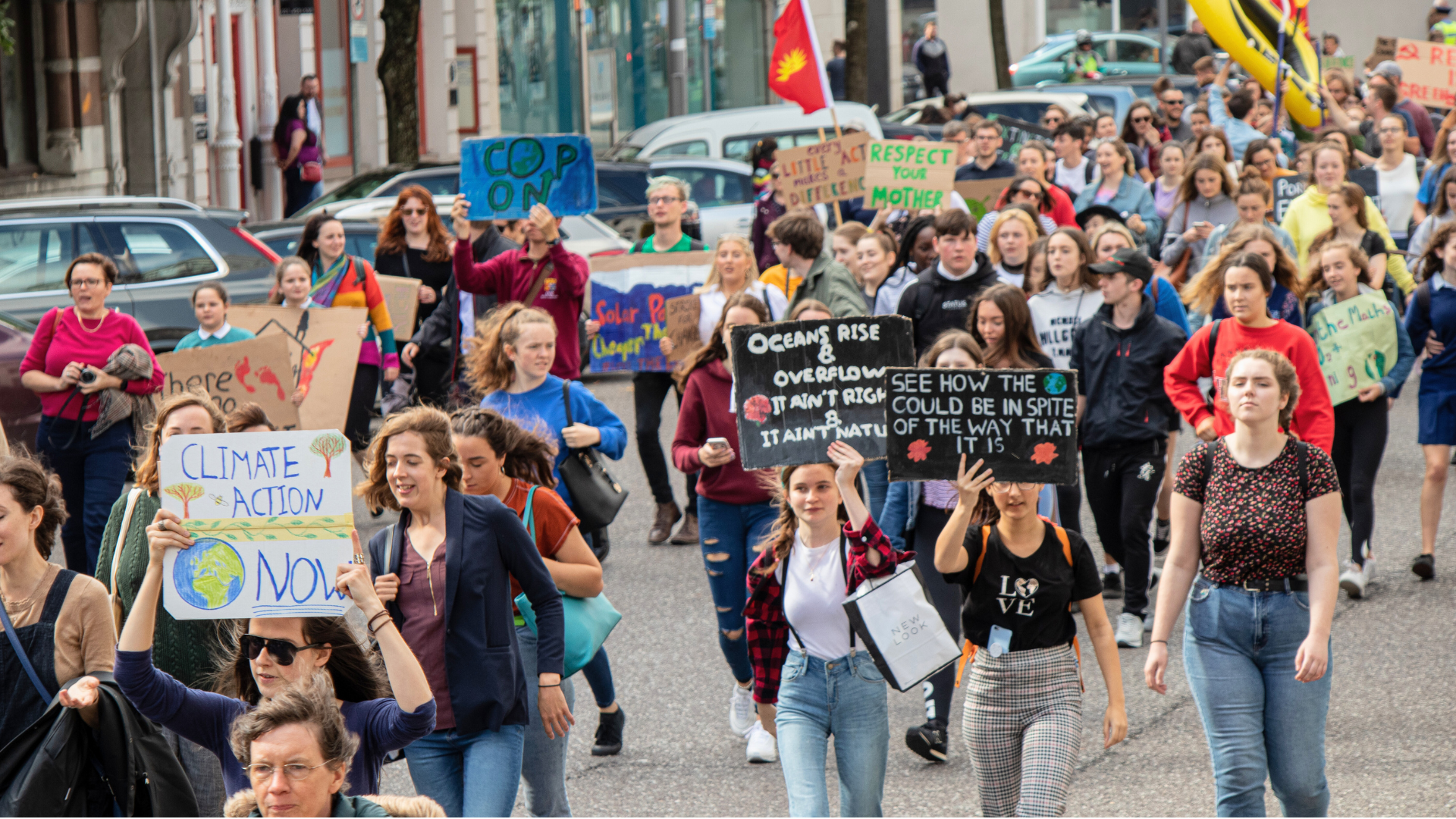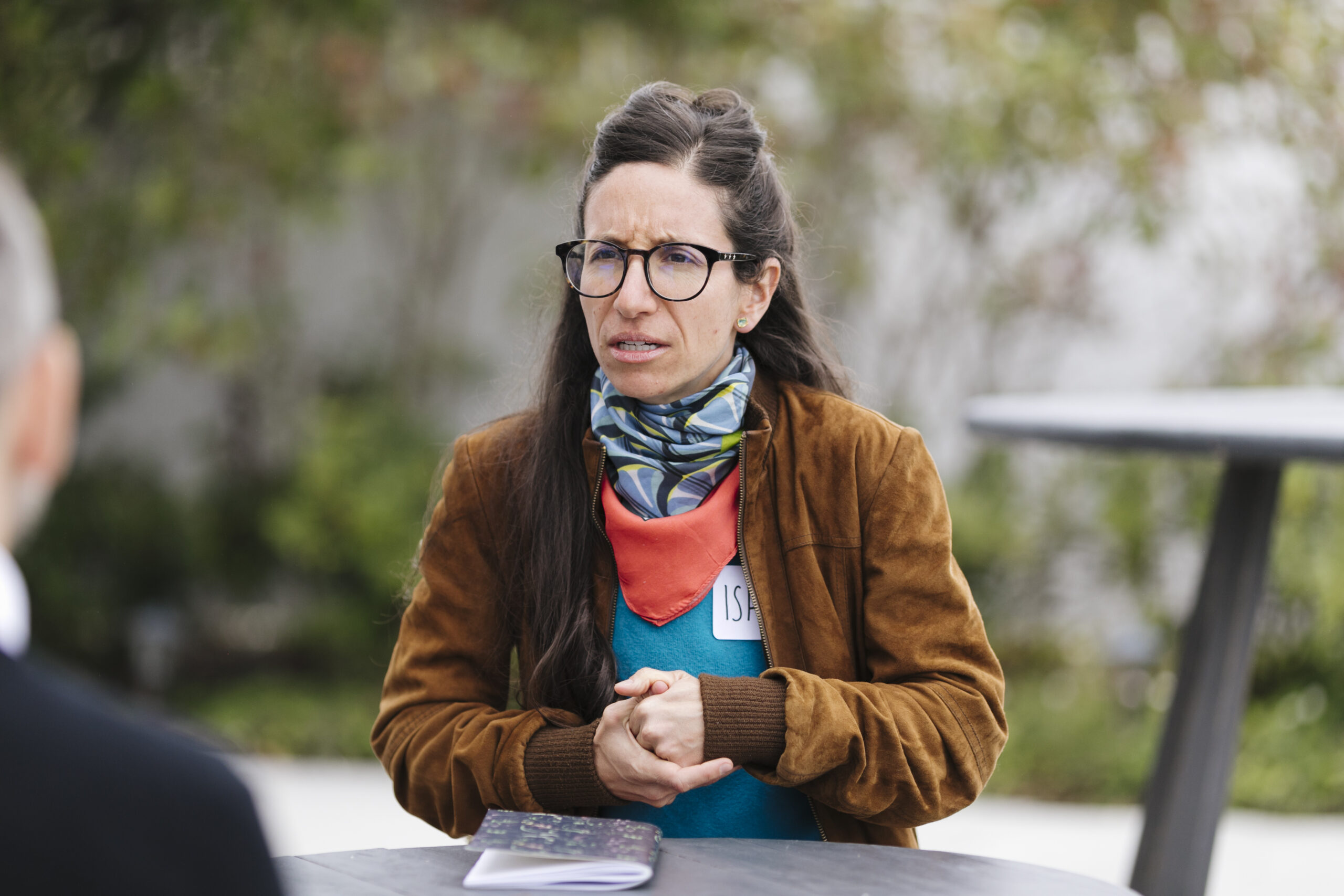JUNE 9, 2023
The Challenge
Climate action is hindered by deep divisions within society and an economy based on resource extraction, in which many people no longer recognize themselves as part of nature. This makes climate advocacy difficult, exhausting, and often dangerous.
The INITIATIVE
Model a shift from separation to integration, and from extractivism to regeneration, by creating holistic systems of care for climate activists, fostering connections and collaboration, and seeding new narratives based on mutual care and interdependence.

As Isabel Cavelier Adarve sees it, climate change is a symptom of a much bigger global crisis caused by humans’ alienation from nature. She says many of us have forgotten that all life forms are interconnected and built an economy based on resource extraction, pollution, competition, and social injustice.
It’s no wonder that greenhouse gas emissions continue to rise. For all the progress the climate movement has made, the fundamentals of the global economy, political systems, and social structures remain the same. Indeed, as Isabel notes, many proposed climate solutions just perpetuate those destructive patterns, and climate activists are exhausted and burned out.
“Understanding the root causes and shifting our mindset is crucial to channeling our energy effectively and achieving meaningful impact,” she says. As a first step, Isabel wants to model the future she aspires to within the climate movement by creating holistic systems to care for and nurture activists, bringing people together, and crafting new narratives about climate action.
She’s pursuing her vision through Mundo Común, or “Common World,” a nonprofit she launched in Bogotá in January 2023 with support from her Climate Breakthrough Award. Starting in Colombia, she plans to show how a culture of mutual support and collaboration, grounded in respect for all people and for nature, can create more profound and lasting change. Over time, she hopes the model she creates will spread across Latin America and worldwide.
From Vision to Action
Colombia is a major coal producer and also has significant oil and gas resources. It has pledged to cut its emissions by 51% by 2030 and reach net zero by 2050, and President Gustavo Petro, elected in 2022, has called for a just transition from fossil fuels to clean energy. Yet transforming Colombia’s economy is a daunting challenge, and the country is still healing from decades of armed conflict that left profound social divisions and wounds. Environmental activists work at the intersection of climate action, social justice, and peacebuilding, often facing threats and harassment; more than 300 have been killed in the past decade.
“Ensuring their safety, protection, and defense of their rights is of utmost importance,” Isabel says. The care systems she aims to build thus go beyond support networks and resources; they require tailored and highly inclusive approaches with space for reconciliation and healing. Yet there is also a hunger for the cultural change she aims to achieve.
“People are increasingly seeking beauty, inspiration, and a sense of belonging in their lives,” she says. “The project’s focus on nurturing eco-socio-systems, alternative ways of relating to the Earth, and the emergence of new languages and narratives can fulfill this deep human longing, making it more attractive and appealing to individuals and communities.”
Her first goal is to create two examples of holistic systems to care for the people on the front lines of climate action, which she hopes one day will be standard parts of climate projects around the world. The idea is to foster health and well-being, ensure their material needs are met, and provide personal security. Stories, culture, art, and beauty are also important elements.
At the same time, Isabel plans to start crafting new narratives to model new ways of talking about climate action and nature protection, grounded in care and interdependence. And she plans to bring changemakers together to share ideas, learn from one another, and collaborate.
“We want to start with women who are doing amazing things and whose power can be unleashed at scale by just being better connected and cared for,” she says. “Ultimately, we need to transform our entire society and economic system, but let’s start with ourselves. Let’s care for ourselves and for one another, and start emerging the future we want to create.”

isabel cavelier adarve
How do you catalyze bold, transformative climate action in a country with over one billion people, a fast-growing economy, a vibrant and diverse civil society, and ambitious policy commitments? Vinuta Gopal, Brikesh Singh, and Sanjiv Gopal share their stories.

